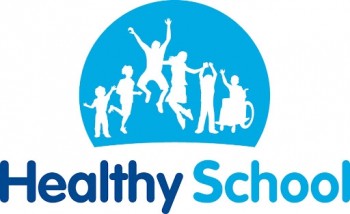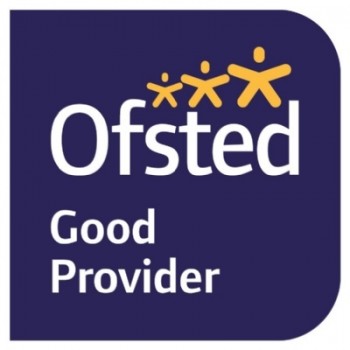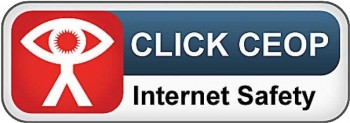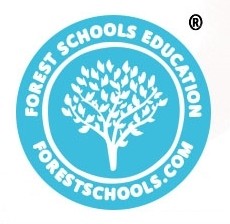English
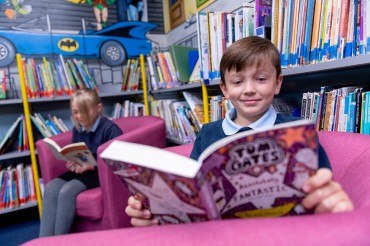 READING
READING
Our library and the Accelerated Reader programme is at the heart of learning to read at our school.
Books have been levelled according to their difficulty using a system developed by Renaissance Learning. Each child undertakes a termly STAR Test to work out their reading range and monitor progress. Pupils can then select books from within their range, from our amazing school library, to read in class and at home every day. They then take reading and vocabulary quizzes based upon what they have read. Through 'Home Connect', parents can view children's progress.
Pupils will also be exposed to an extensive range of vocabulary and texts during not only their English lessons but our Cornerstones Curriculum.
How we Teach Reading at Cromer Junior School
- We want to instil a love of reading in all children.
- We want to encourage our families to read to and with their children as often as possible.
- We want our children to be fluent and confident readers, able to decode words and understand a wide range of vocabulary and texts.
Our exceptional and eye-catching Library is at the heart of our school. Our Librarian regularly purchases exciting new books that have often been requested by pupils. We are proud to be an Accelerated Reader Champion School. Every child accessing Accelerated Reader, chooses from a wide range of books at a suitable reading level. Children are motivated to read and challenge themselves to gain maximum points in the associated quizzes. The AR programme is used both in our classrooms every day and our parents support and monitor their child’s progress by logging on at home. Within the AR scheme, ‘Early Literacy’ is available for those pupils who need our help to learn to read fluently (below 6.5 reading age). These pupils will have carefully chosen 'catch -up' books sent home three times a week with an expectation that they are supported by parents. At least three times a week an adult will hear reading by any child that needs extra help, whilst building meaningful relationships and fostering a positive environment in which to share books.
We understand that the sharing of books is a wonderful way to experience reading. All of our children enjoy joining younger children from Suffield Park Infants School to share a book. We also have twice weekly ‘book groups’ run by the librarian at lunchtime. Some children in Year 3 and 4 may benefit from small bursts of guided group reading of levelled AR books during AR sessions. These sessions are led by our experienced adults. As the children get older, in Years 5 and 6, they engage in independent (without an adult) group reading sessions of AR books during AR sessions. Our teachers skilfully use a wide range of diagnostic reports from Accelerated Reader to identify children that require extra support.
Pupils have a reading record for all reading completed at home with parents and in school. At home, older children and stronger readers may complete the reading record themselves, while younger children may ask an adult to record their reading for them. Pupils also complete their reading record for all reading completed at school, as a way of monitoring the quantity of reading during in school AR sessions.
At Cromer Junior School, we recognise that children need to be able to read fluently before they can build understanding. Some children arrive at our school needing help to decode words - just at the point when age appropriate texts and language demands accelerate away from their personal language. Our specialist teacher will teach Phonics for 5 sessions over 3 days to rapidly accelerate their progress. As exposure to a rich language benefits pupil’s reading comprehension and individual vocabulary ‘banks’, each Year Group teacher pairing carefully selects whole class texts which are read by the teacher every day: short stories, picture books and poems – as well as novels. Through regular topic reading, children experience a wide range of text types and are presented with new technical vocabulary. AR vocabulary quizzes reinforce children’s understanding of the meaning of challenging words. Our children recognise how important we think that Reading is by the frequency that we do it.
At Cromer Junior School, we teach the ‘how’ of reading by focussing on active reading strategies: we tell our children what the individual skills of reading are. We teach the whole class a ‘strategy of the week’ which is then practised and applied throughout the rest of the two weeks. The six reading strategies are revisited half termly. Our pupils are taught to understand what is important about reading and that one purpose of reading is to gain meaning. Our teachers and adults hear every pupil read in rotation, with notes recorded in a class log. Teachers expertly question individual children about their reading strategies. Children are encouraged to think about what sort of reader they are, how they can improve as a reader, and the link between reading frequency and enjoyment.
All children are expected and encouraged to fluently read aloud with expression and intonation by the end of the key stage.
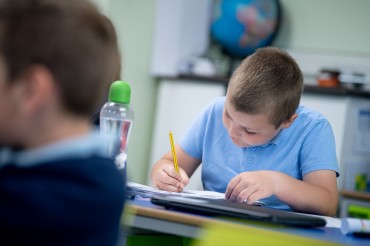 WRITING
WRITING
Our pupils are given the opportunity to write in a wide range of genres and encouraged to use new and interesting vocabulary in every piece.
Progressive half termly Pathways to Write units support children to develop their knowledge of spellings, grammar and punctuation and teaches them how to use and apply these skills when writing different text types . Our Spelling Mastery programme encourages parents to support their children to learn spellings at home ready for the half termly 'Big 60'. Year 3 pupils continue to develop their phonic knowledge through specific sessions.
How we teach Writing at Cromer Junior School
- We want all children to be fluent and confident writers in a wide range of situations who are proud of both the content of their work and the presentation.
- We want our young writers to have fluent, legible and, eventually, speedy handwriting.
- We want to support our children to be writing at the expected level for their age or to be writing at a higher standard.
- Above all – we want our children to WANT to write.
Writing
At Cromer Junior School we believe that it is essential that our teaching develops our pupils’ competence in transcription (spelling and handwriting) and composition (articulating ideas and structuring them in speech and writing).
Writing down ideas fluently depends on effective transcription: that is, on spelling quickly and accurately through knowing the relationship between sounds and letters (phonics) and understanding the morphology (word structure) and orthography (spelling structure) of words. Effective composition involves forming, articulating and communicating ideas, and then organising them coherently for a reader.
At Cromer Junior School, we want our children to enjoy writing and we feel the 24 carefully chosen units from the writing scheme Pathways to Write, provides opportunities for enjoyment as well as mastery of skills. Along with a regular ‘free writing’ opportunities known as ‘Pobbles’.
Each year group covers a unit of work each half term with additional poetry units taught when the teaching sequence of 15 sessions (taught over three days each week) allows. The programme is designed to allow teachers to have ownership rather than feeling that it should be followed in the same way by everyone.
Pathways to Write, follows a Mastery-Learning model, where key skills are taught and repeated and there are multiple opportunities, throughout each unit, to use and apply the skills until they can be mastered fully.
Within each sequence, there are many opportunities for incidental short- burst writing with an extended written outcome built up to by the end of each unit and there are suggested activities for greater depth pupils in most lessons and for every final writing outcome.
Each units’ planning follows the same learning sequence of;
- Gateway: A hook into the context of learning and a short writing with a focus on assessment of previously taught skills (Gateways Keys) - where pupils are struggling to apply and to use Gateways keys, these are built into the planning of the unit to ensure more a personalised learning approach.
- Pathway: Mastery skills are introduced with many opportunities along the way to practise and apply these skills in different writing tasks; providing a range of on-going evidence for writing assessment.
- Writeway: Sectioning and sequencing texts using a model and writing the final piece when children are encouraged to plan, write, check, edit, re-draft and publish as required; with the focus on using and applying the mastery skills they have been taught.
Poetry
Teachers use the Pathways to Poetry to teach poetry units across the academic year, which cover both reading and writing objectives related to poetry. The planning sequence follows the same sequence as the Pathways to Write units;
- Gateway: A hook into the context of learning followed by the opportunity to learn all or part of at least one poem by heart.
- Pathway: Reading and comparing poetry, identifying key features (the Poetry keys) in poems, collecting language and developing ideas ready for composing.
- Writeaway: Investigation of a model poem followed by the children planning and writing poems of their own.
Spelling
At Cromer Junior School we recognise that many of our children struggle with spelling, therefore we have adopted Pathways to Spell which is designed to be paired with our writing units, where learning is sequenced into five stages; review, explain, practise, apply and reflect.
The Pathways to Spell programme is designed for whole class teaching of the Primary National Curriculum objectives for spelling across KS1 and KS2. It is a comprehensive and progressive programme with a clear, research-based teaching sequence, combining consolidation of previously taught spelling patterns and rules in conjunction with new teaching, supporting children to develop key metacognitive strategies. It is taught during three 20 minutes sessions each week.
Our supportive parents also help us to improve children’s spelling by using our ‘spelling mastery’ system of practise and testing. The aim is for children to recap, revise and learn the age appropriate spelling rules from their previous school year alongside the rules for the current year in a ‘mastery’ approach.
We are also aware that it is important to enrich our children’s vocabulary. Pathways to Write/Poetry and the Cornerstones Curriculum exposure them to a range of carefully selected texts and high quality knowledge organisers for modelling writing, introducing topics and as regular class readers, enabling our children to absorb language. Pathways to Spell includes ‘Explain’ lessons in the five stages of learning when children explore and investigate new words and spellings. Word banks, vocabulary vaults and talk around language shows our children that we value careful and precise vocabulary choices.
We are confident that our teachers know every child’s strengths and weaknesses by regularly updating a class writing assessment grid. They know where the gaps are in individual children’s learning, which is heavily supported by the Pathways to Write learning sequence, and they can also spot where further whole class teaching is required.
Pathways Progression English
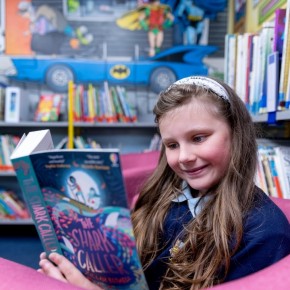

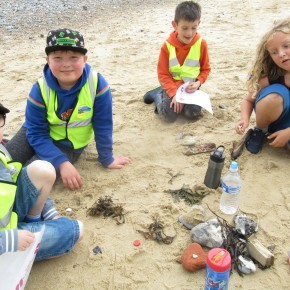
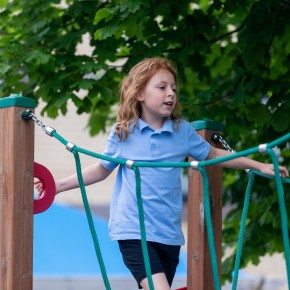
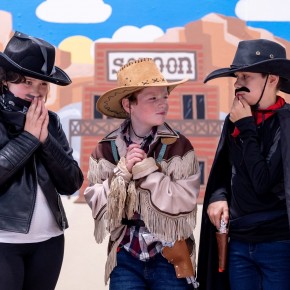
 READING
READING WRITING
WRITING